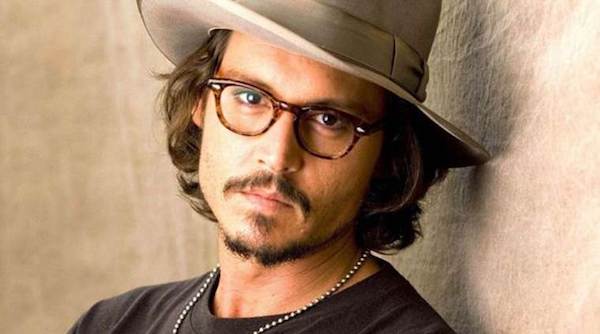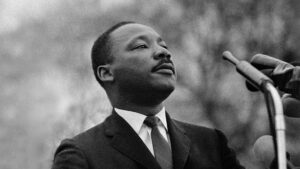
By Thomas M. O’Toole, Ph.D.
Last year, famed actor Johnny Depp filed a lawsuit against his management company for professional negligence, breach of fiduciary duty, fraud, and unjust enrichment among other things, essentially claiming that his management company, TMG, stole a significant amount of money from him. According to news reports, the case is expected to go to trial this coming August.
Sadly, the story of a management team ripping off its successful celebrity client has become all too common. We have consulted on a variety of these cases throughout the years, involving television and movie actors, famous musicians, and celebrity athletes. Our research has shown that these cases can be difficult for the celebrity victims, but there are significant opportunities to overcome many of the common hurdles.
The key struggle in these cases (from the celebrity’s perspective) is almost always the same: How do the celebrity victims explain in a compelling way the concept of fiduciary duty when faced with the common narrative of a reckless celebrity who simply would not listen to reason? Stories about the rise and fall of celebrities dominate our current culture. The magazine racks at the grocery store check-outs exemplify our culture’s obsession with these stories. Basically, people are spending a lot of time and, sometimes, a lot of money to hear and read about celebrities’ chaotic lives. This common cultural narrative provides a strong back-drop for the value of personal responsibility that is so important to jurors across the country. And of course, there is certainly a little bit of fundamental attribution error at play, with many jurors wanting to blame everything on the choices of the celebrity victim. All of these work against the celebrity and his or her attempts to control the narrative at trial.
This creates a difficult scenario where jurors must choose between the abstract concept of fiduciary duty (which is VERY abstract for jurors) and the common defense narrative of a reckless and irresponsible celebrity who is now simply trying to avoid all accountability for his or her actions, the latter of which tends to be the more attractive option for jurors. The problem in these scenarios is that the actual meaning of “fiduciary duty” may go against what the jurors want to believe (or they simply find it too confusing); and we know from our research that what jurors wantto believe will almost always win out over what is actually true. So, instead of holding defendants to the standard that they must always act in the best interest of their client, it is too easy for jurors to get tempted by the belief that the celebrity knew, or should have known, and was complicit in the transfer of money, usually attributed to the celebrity’s unrestrained, extravagant lifestyle. In this scenario, the pop culture narrative embraced by jurors essentially lets the defendants off the hook.
The key in a case like this is to find a way to talk about fiduciary duty in a manner that is meaningful and compelling to jurors and shifts the case away from questions of personal responsibility and accountability for the celebrity. The generic theme of “broken trust” just doesn’t cut it against the sexy story of celebrity excess. The narrative needs to be more specific to the celebrity without making the actual case about him. As we know, a verdict is the product of what jurors choose to focus on the most in deliberations. Focus tends to be critical, meaning the focus should be on the defendants in these cases. This may seem obvious, but some attorneys like to “show off” their client, convinced that the jurors will be so enamored, they will quickly fall in line and favor the celebrity victim. This is rarely the case. We have conducted shadow juries in cases where we had celebrity clients. The data absolutely found that the shadow jurors were more attentive and interested in the celebrities’ testimony (i.e. there was certainly an awe factor), but that awe did not necessarily translate into credibility and believability. In fact, there seems to be some inherent skepticism about the testimony of celebrities.
It’s helpful in some cases to tie the concept of fiduciary duty to who the celebrity is. For example, in one case where we had a celebrity client who had a well-documented lifestyle of excess, we explained that our client recognized this tendency in himself early and made the responsible and important decision to go out and spend a lot of money on qualified people who could watch out for him and protect his financial future. In this respect, we embraced the defense narrative about our client (mainly because we had no choice with the particular fact set) and used it against the defense. We effectively “swift-boated” them and used their own narrative to help jurors understand the incredible duty that they owed to our client.
Because the fiduciary duty narrative varies so much from case to case in these celebrity cases, it is critically important to conduct some jury research, such as focus groups or mock trials. This gives the client and their attorney an opportunity before trial to test out the narrative and themes, and how well those guard against the defense narrative of celebrity excess and irresponsibility. It sheds light on the best narrative and thematic paths for framing the concept of fiduciary duty in the case, and it gives the attorneys an opportunity to poach key words and phrases from the plaintiff-oriented mock jurors who are able to exert influence during deliberations.
Another important strategy in these cases has to do with opening statement. In order to help guard against the sexy defense narrative of the irresponsible and reckless celebrity, the plaintiff needs to prove something important right out of the gate at trial, meaning in opening statement. This is where credibility is established. The best way to prove something important is through key admissions from the defendants (ideally in the form of video deposition clips or “hot docs” such as emails that show their nefarious activity at work). Jurors need to see this stuff with their own eyes. If jurors can see these kinds of things early in the opening statement, it will help shift their critical focus and recognize that this is not just another case of a reckless and irresponsibility celebrity trying to hold others accountable for his own mistakes. For example, a deposition video clip of the defendant manager at his worst or making a key admission should be admissible since the manager is a party to the case. This helps frame the character of this individual (using his own words) before the defense can even get up and speak. These kinds of first impressions are so powerful and can give plaintiffs in these cases a much-needed edge.




